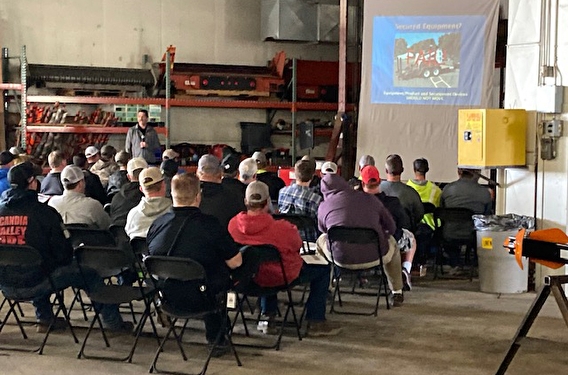
MnLTAP's on-site training program brings the latest transportation-related training and innovations directly to your location!
Minnesota townships, cities, counties, and tribes are eligible to request on-site training. Workshops can be held anywhere with enough space for displays and demonstrations, provided the site is reasonably quiet and comfortable. Workshops are informal and usually hands-on—many are held in or adjacent to maintenance facilities.
Available Trainings
The following MnLTAP trainings are available on-site only:
- New! Maintenance Welding Training
- Best Practices: Corridor Management/Maintenance of Paved Recreational Trails
- Motor Grader Operator Training
- Roadside Vegetation Management
- Core Temporary Traffic Control
Local agencies can also request an on-site session of any MnLTAP workshop listed in our training catalog.
Session Fees
The cost per session starts at $300 for a two- to four-hour workshop. Additional fees will apply for instructor travel expenses to and from the training site, full-day workshops, and any special workshop materials. Agencies may request a cost estimate during the scheduling process. Agencies will be invoiced after the completion of the training.
Session Size
The ideal session size is 25 to 30 participants. However, we may accept as few as 8 to 10 and as many as 40 participants. The instructor and the host agency will determine actual class size and potential attendance limits.
Host Agency Responsibilities
One goal of our on-site training visit is to include as many participants as possible. We encourage—but don't require—the host agency to invite maintenance personnel from neighboring agencies to their training session.
The host agency is responsible for arranging all training accommodations and fee payments.
Roads Scholar Program
Most on-site workshops are eligible for Roads Scholar Program credit. Please refer to individual workshop web pages for credit details.
Sponsors
On-site training is offered by Minnesota LTAP at the Center for Transportation Studies, University of Minnesota. Minnesota LTAP is sponsored by the Minnesota Local Road Research Board (LRRB) and the Federal Highway Administration (FHWA).